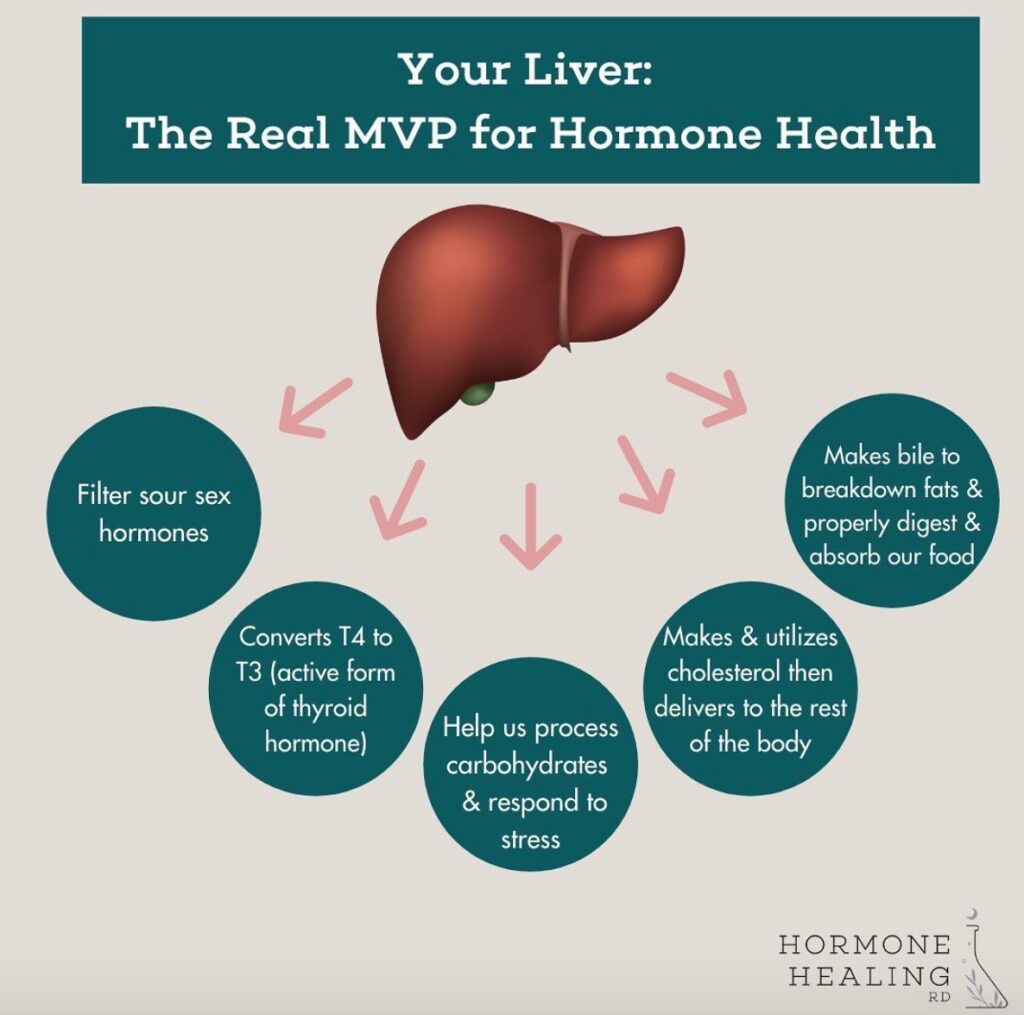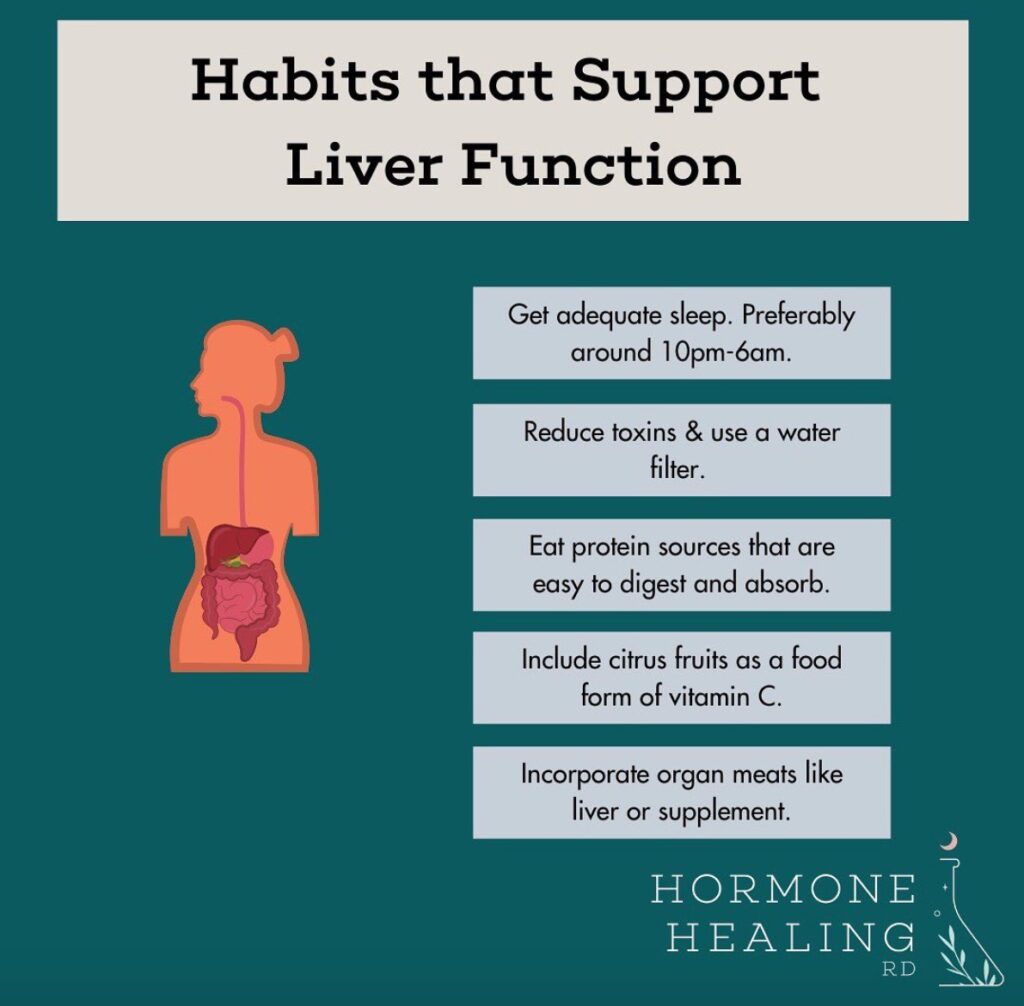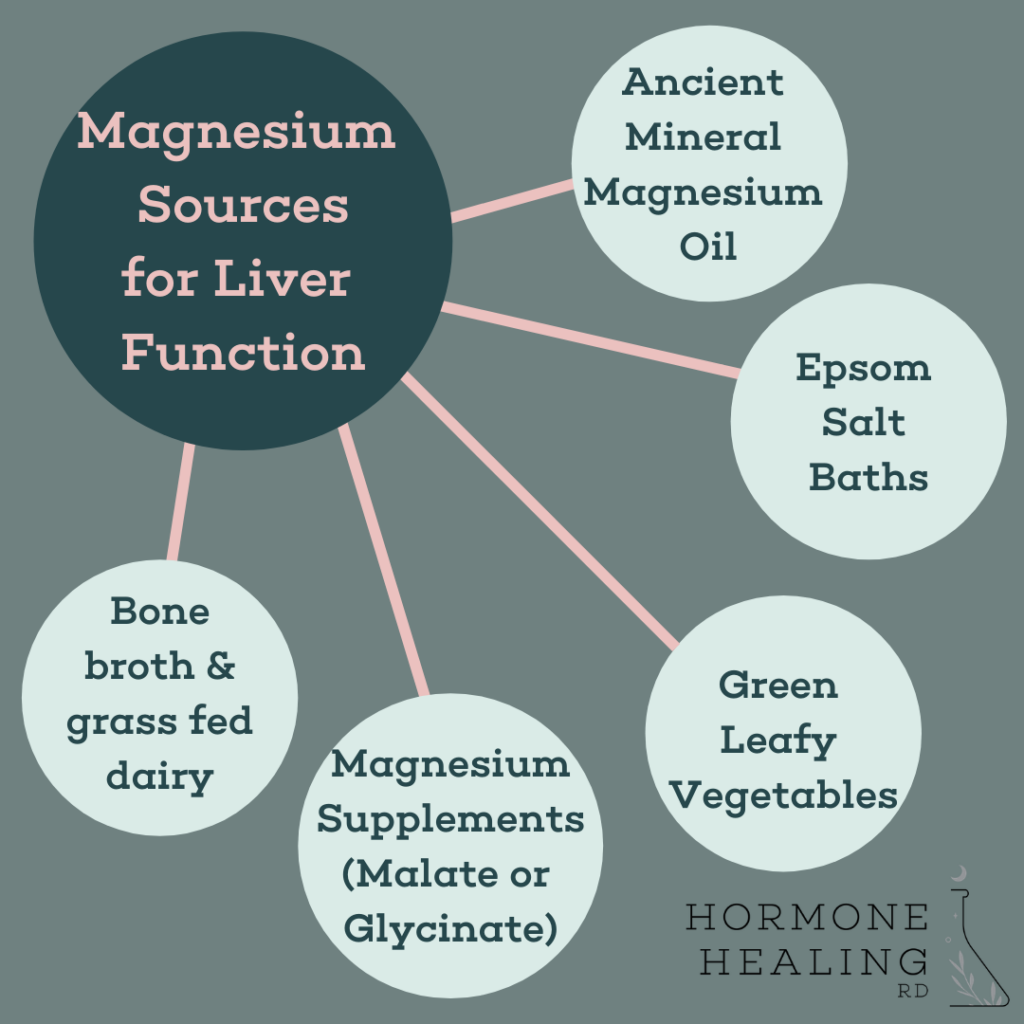Some of the most common questions I get are around premenstrual symptoms (PMS) like acne, bloating, extreme fatigue, weight gain, etc. While we can try to generalize what possible hormone imbalances are present, I think the most helpful thing to do is zoom out and focus on what could be exacerbating this. When we think about the premenstrual time, hormones are high, which means that our liver has an increased workload.
What Is So Special About the Liver?
The human liver is the largest internal organ that operates over 500 vital bodily functions. Some of those functions include sending protein to areas that need it, processing hormones, converting cholesterol, and storing vitamins and minerals. Many of the other functions directly impact hormone levels. For this reason, it is important to consider the liver when working towards improving periods. The liver stores and produces sugar. If the liver is excessively stressed out and does not have adequate nutrients it cannot properly convert T4 to T3. This conversion is essential for thyroid function, which serves as the hub for hormone health. The conversion of T4 to T3 also allows us to metabolize carbohydrates for energy use in the body. I go into greater detail about the importance of T4 to T3 conversion in my blog series on the thyroid.
What Does the Liver Do for Our Hormones?
The liver is involved in metabolism, immune responses, and other biological processes. If the liver becomes impaired, the end results are higher levels of aldosterone, growth hormone, and glucagon; all of which promote excretion of magnesium in the urine. Direct impacts of the liver on hormones include:

What Can You Do to Support Your Liver?
Keeping the liver healthy is one of the goals for healthy hormones. One way to ensure healthy liver function is to adopt daily habits that will support it. The most basic, yet helpful ways to support the liver include:

What Does the Liver Love?
Magnesium: A Magical Mineral
Magnesium is a magical mineral for several reasons, but perhaps its top quality is that it supports liver function, among other things. Magnesium is very important for carbohydrate metabolism. It helps to stabilize blood sugar levels. On the opposite side of things, low levels of magnesium have been linked with chronic inflammation and insulin resistance. The relationship between liver disease and magnesium is interesting–many people suffering from liver disease have a magnesium deficiency and low magnesium levels worsen liver diseases. How do you know if you have low magnesium? Most of the symptoms present as PMS, like muscle cramping, low energy or fatigue, frequent headaches or migraines, elevated blood pressure, intense cravings for sweets, and mood changes.
How Can You Increase Your Magnesium Intake?
Magnesium has been shown to decrease premenstrual symptoms like bloating, cravings, cramping, and reduce the associated anxiety and sleep pattern disturbances. Magnesium can be found in many food sources like dairy, sprouts (broccoli, cauliflower, and Brussels), and wild-caught fish (tuna, salmon, trout, and mackerel). However, some of my favorite sources of magnesium are:

Since the liver is the largest internal organ, it seems fitting that it has so many responsibilities. One of its major responsibilities being hormone regulation. If you have become fed up with experiencing premenstrual symptoms, it is time to take a closer look at your liver functionality. Increasing magnesium intake may improve liver function and reverse those pesky premenstrual symptoms. To learn more about how to optimize your metabolism, support healthy hormones, and have better periods—check out my Master Your Minerals online course, in which we teach you how to interpret your own HTMA and build a hormone-healing protocol based on your unique results.
